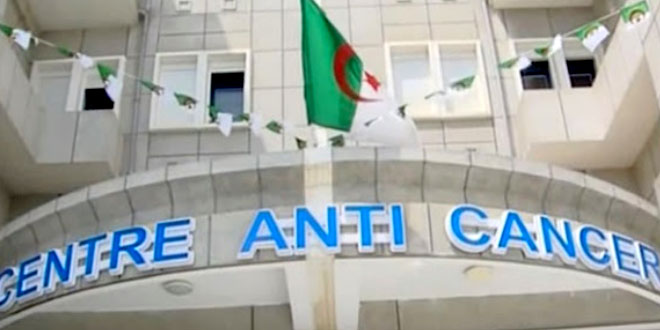Algeria has taken important steps in cancer care. It is not politicians who say this, but specialist doctors.
Professor Kamel Bouzid, head of the center’s oncology department, stressed that “despite the problems that still exist, no one can deny that the country has recorded remarkable progress in the field of care for patients suffering from this disease.” aljeria.
Speaking during the awareness-raising day organized by the Al-Rahma Association in Boumerdes, the prominent oncologist confirmed that “the national territory has been covered for four or five years in a homogeneous manner, both in terms of medical oncology structures and in radiotherapy centres.”
It must be said that these efforts were made in the wake of the huge increase in cancer cases every year in Algeria. Using INSP figures, Professor Okal reported 60,000 new cases in 2023, including 14,000 cases of breast cancer, followed by colorectal, lung, prostate, thyroid and other cancers.
Even in small hospitals, people with this disease are not rare. “At Thénia EPH we work on a daily basis. If it's not the colon or the prostate, it's the rectum, the pancreas and the thyroid.” He also realizes that care “has clearly improved, both surgically and medically.”
He says: “The patient is followed up from diagnosis until recovery, as the disease is detected at an early stage,” pointing to the gaps that must be filled, such as the problem of frequent malfunctions of the scanner and endoscope. In order to alleviate the suffering of patients, the state began increasing the number of treatment centers throughout the national territory.
“Today, we have 22 or 23 radiotherapy centres, 14 of which are in the public sector. The government has acquired a lot of accelerators and we have trained oncologists and radiotherapists.
Now there are cancer control centers even in the southern states of the country, such as Béchar, Laghouat, Ouargla and El Oued. This saves patients from having to travel long distances to the northern states to receive treatment.” He says that despite this progress, many shortcomings remain.
Innovative treatments
Professor Bouzid did not neglect to talk about the delay in the acquisition of some medicines, which allows the use of innovative treatments that have proven effective in treating several types of cancer. “The request was registered by the Ministry of Health. Unfortunately, we were told that it is very expensive.
Professor Chetwan confirms that it is impossible for all molecules to be available for all types of cancer. Many patients also complain about the problem of very distant appointments for follow-up radiotherapy sessions. “It is due to a management problem. Why are faults not fixed on time in the public sector while we never talk about it in the private sector?”
Other doctors who participated on this day addressed the importance of prevention by adopting a multi-sectoral approach to combating cancer, stressing that this must begin at the level of the family unit and in the school.
For his part, Dr. Ozette returned to the need to enhance early detection in order to reduce the cost of treatment and the chance of survival for patients.
Dr. Al-Zaidi, from Beni Messous University Hospital, discussed the factors that increase the risk of cancer, citing tobacco and alcohol addiction, obesity, a sedentary lifestyle, and poor nutrition. But there are also, she identifies, genetic predispositions, such as hormonal contraception, termination of pregnancy, and lack of breastfeeding, that increase the risk of breast cancer in women.

“Music guru. Incurable web practitioner. Thinker. Lifelong zombie junkie. Tv buff. Typical organizer. Evil beer scholar.”





![[VIDÉO] LPHF: Like Cole Caufield, Ann-Renée Desbiens has her own unique shoes](https://m1.quebecormedia.com/emp/emp/63411_07894593662cf2-8a9e-4bd6-aa34-c999d634a876_ORIGINAL.jpg?impolicy=crop-resize&x=0&y=291&w=3492&h=1966&width=1200)

More Stories
Science is for everyone
Message from the Minister of Health – Food Allergy and Digestive Disease Awareness Month
European Space Agency – Space for Kids